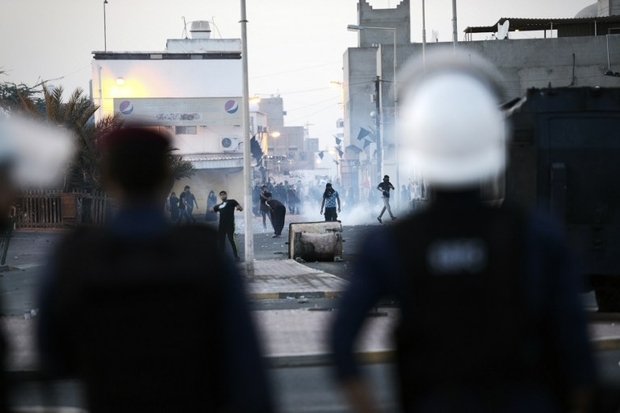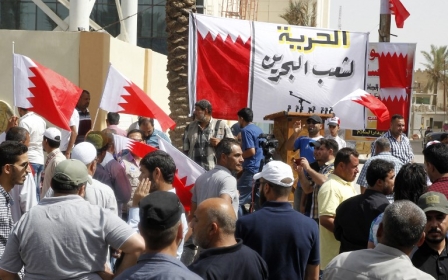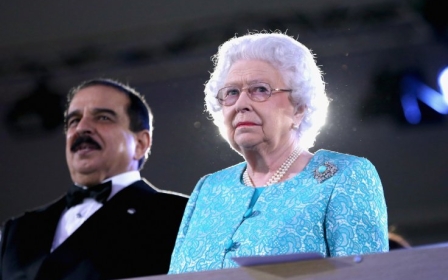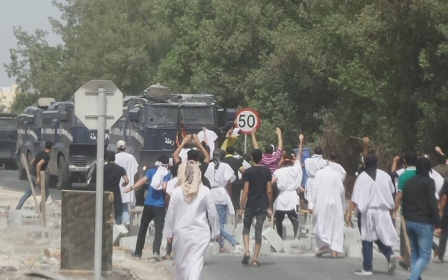Bahrain heading for 'total suppression' with secular group ban

Bahrain is heading for "total suppression", human rights groups have said, after the reported banning of a secular opposition group on Wednesday for "supporting terrorism".
A Bahraini court ordered the dissolution of the National Democratic Action Society opposition group, known as Waad. The Arabic-language al-Wasat newspaper said that the high administrative court decided to "dissolve Waad" and "confiscate its assets for the benefit of the state treasury".
The ruling comes following a petition filed in March by Bahrain's justice ministry accusing Waad of supporting terrorism.
Human rights groups called the ruling, which is subject to appeal, "a de facto ban on all opposition".
"Shutting down the last opposition party is a declaration of a de facto ban on all opposition," said Sayed Alwadaei, the director of advocacy for the Bahrain Institute for Rights and Democracy.
"The government of Bahrain is acting with the aim of totally silencing all peaceful voices, leaving open the alternative of underground opposition and violence.
"This was allowed to happen because Bahrain feels zero geopolitical and international pressure from 'champions of democracy' in the West," he added.
On 6 March, Bahrain's justice ministry took steps to dissolve a major opposition group it accuses of supporting terrorism, state news agency BNA reported, filing a lawsuit the group said was an attempt by the government to stamp out dissent.
The justice ministry accused Waad of "serious violations targeting the principle of respecting the rule of law, supporting terrorism and sanctioning violence".
Radhi al-Mooswai, a leader of the group, expressed shock, saying Waad was committed to peaceful political work and rejected violence.
"This is another step to undermine political work by the opposition in Bahrain," he told Reuters.
Lynn Maalouf, the director of research at Amnesty International’s Beirut office, said the move set Bahrain on a course of "total suppression of human rights”.
"The suspension of Waad is a flagrant attack on freedom of expression and association, and further proof that the authorities have no intention of delivering on promises of human rights progress,” she said.
The Western-allied kingdom has been a political flashpoint since Arab Spring protests in 2011 led by its Shia majority were put down by the Sunni-led government with the help of Gulf Arab states.
The crackdown entered a new phase last year when authorities banned the main Shia Muslim opposition group, al-Wefaq, and revoked the citizenship of the country's top Shia Muslim cleric.
Al-Wefaq won 18 out of 40 seats in elections in 2010 but pulled out of parliament a year later during the Arab Spring crackdown. Both it and Waad boycotted elections in November 2014 that were won overwhelmingly by pro-government and independent candidates.
Attacks on public targets have jumped this year after authorities carried out a death sentence on three men convicted of a deadly bombing of policemen in 2014. Bahrain accuses Iran of fomenting violence in the kingdom, a charge Tehran denies.
A government advisory body passed a constitutional amendment on Sunday authorising civilians suspected of attacking security forces to be tried in military courts.
New MEE newsletter: Jerusalem Dispatch
Sign up to get the latest insights and analysis on Israel-Palestine, alongside Turkey Unpacked and other MEE newsletters
Middle East Eye delivers independent and unrivalled coverage and analysis of the Middle East, North Africa and beyond. To learn more about republishing this content and the associated fees, please fill out this form. More about MEE can be found here.




